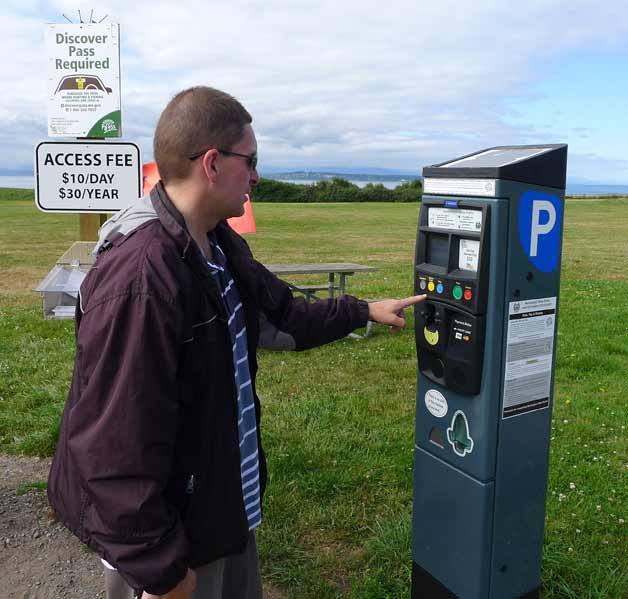Buying a pass to visit state parks is getting easier.
As part of a trial program, Washington State Parks introduced credit card machines for the sale of Discover Passes in the parking lots of 10 state parks, including three locations on Whidbey Island. Currently the solar-powered credit card machines can be found at Fort Casey State Park and Deception Pass State Park at the south bridge parking lot and at Cornet Bay.
Jon Cummins, manager of the state parks on Central and South Whidbey Island, said that the new credit card machine has been accepted by park visitors.
“To my knowledge, everyone here has had good success with it,” Cummins said.
Prior to the introduction of the credit card machines, people could stuff an envelop with cash or check and put it into a locked box at the parking lot. Or they could also stop by the park office, which is sometimes locked when park staff are away tending to park needs.
Currently people can only purchase the $10 day-use pass at the credit-card machines. Plans are in store to allow for the purchase of annual, $30 passes and for people to make a donation.
The credit card machines were installed in late June. It cost the state parks $5,700 and an additional $300 for installation. Twelve machines have been placed at the 10 state parks.
Sandy Mealing, spokeswoman for Washington State Parks, said the machines installed on Whidbey Island are part of a pilot project that will last up to a year. If the machines can pay for themselves, then they will be expanded throughout the park system.
In addition to Deception Pass and Fort Casey, the credit card machines were installed at Beacon Rock, Cape Disappointment, Lake Sammamish, Ironhorse, Miller Sylvania, Saltwater, St. Edward and Wallace Falls state parks.
The state implemented the Discover Pass in the summer of 2011 in hopes the user fee will be able to replace taxpayer dollars that were cut from the parks; however, collections have fallen far short of projections.
Approximately $17.7 million has been collected while officials hoped to collect $64 million through the course of the 2011-2013 biennium.



